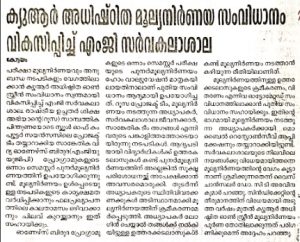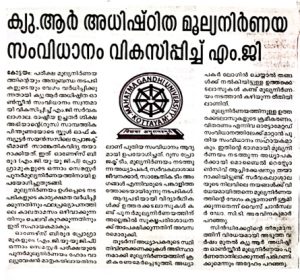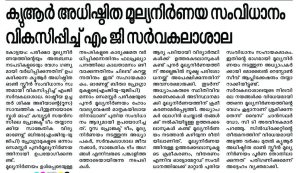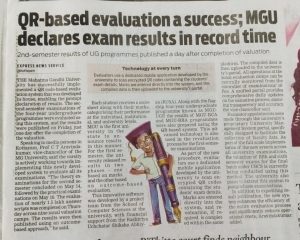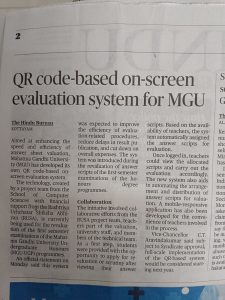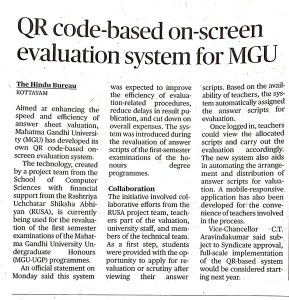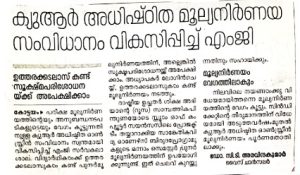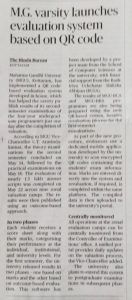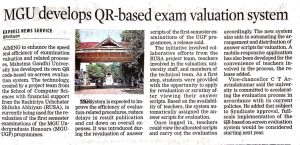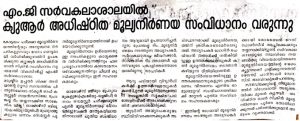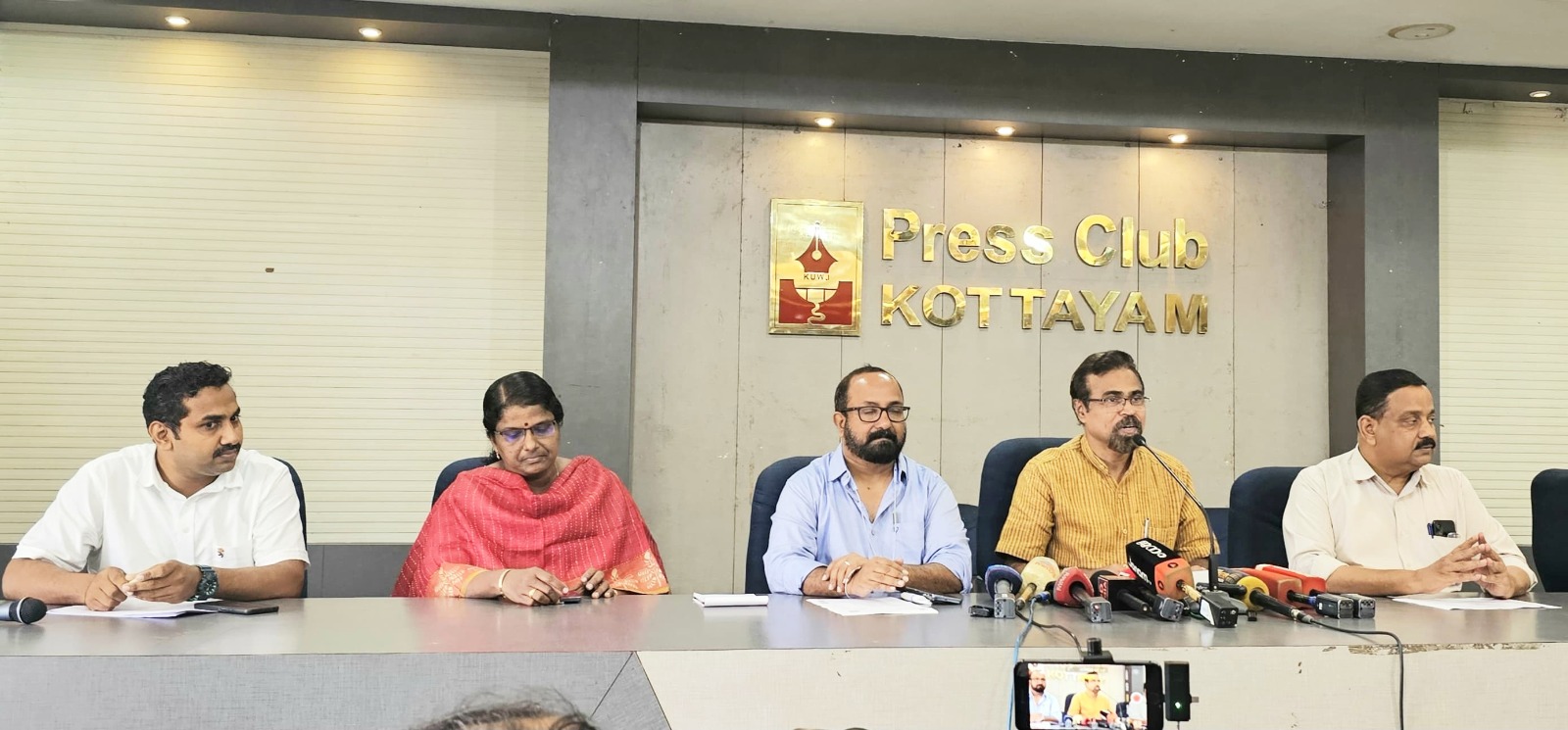
Dr. C.T. Aravindakumar, Vice Chancellor of Mahatma Gandhi University, is speaking at a press conference held at the Kottayam Press Club. Also present are University IT Director Mr. P. Pradeep, Head of the School of Computer Sciences Dr. V.R. Bindu, Controller of Examinations Dr. C.M. Sreejith, and Syndicate Member Mr. Joji Alex.
In a significant leap toward digitizing academic assessment, School of Computer Sciences has successfully implemented a QR code-based automated examination system, becoming one of the first universities in India to publish undergraduate exam results just a day after the completion of evaluation.
The initiative, developed in-house by the School of Computer Sciences, was piloted under the RUSA 2.0 scheme and is designed to overhaul traditional examination methods by introducing a secure, efficient, and scalable digital model.
Evaluators used a dedicated mobile application to scan encrypted QR codes on student answer scripts, securely accessing exam details. This system allowed for real-time entry of marks and direct upload to the university’s centralized portal. A unified digital system ensured end-to-end monitoring by the controller of examinations, bringing a new level of transparency and accuracy to the evaluation process.
This transformation is the result of a detailed comparative study conducted on automation systems at Delhi University, Anna University, University of Mumbai, and CUSAT, which informed the development of MGU’s unique model.
The process follows a three-phase structure:
The evaluation of nearly 1.5 lakh answer scripts was completed in just two days across nine zonal camps, a task that earlier took weeks.
Each student received a score sheet with performance metrics, categorized by subject, institution, and university levels.
The system includes robust cybersecurity features such as Role-based access control, Encrypted data transfers and Audit trail logs. These ensure the integrity of academic records while minimizing manual intervention and reducing operational costs. Future plans to extend this model to all examinations, including postgraduate programs. Final semester UG exams under the CBCS system are already underway using the new platform.
This project positions MGU as a national leader in exam automation, offering a replicable and cost-effective model for universities across India.
RUSA 2.0 (Rashtriya Uchchatar Shiksha Abhiyan) is a centrally sponsored scheme launched by the Ministry of Education, Government of India, to improve the quality, equity, and accessibility of higher education in state institutions. Building on the success of its first phase, RUSA 2.0 focuses on enhancing academic infrastructure, promoting accreditation and ranking, fostering innovation, and supporting the digital transformation of universities through initiatives like smart classrooms, automated examination systems, and e-learning platforms. It adopts a performance-based funding model and encourages institutional autonomy, aiming to make higher education more outcome-oriented, inclusive, and globally competitive.
The project titled “Study and Analysis of Automated Examination Systems in Indian Higher Educational Institutions and Design and Development of a Unique Model for Mahatma Gandhi University” is a 12-month initiative led by Prof. (Dr.) Bindu V R, Professor at the School of Computer Sciences, Mahatma Gandhi University, with support from Co-Principal Investigators Prof. (Dr.) Anuj Mohamed, Prof. (Dr.) Pushpalatha K.P., and Prof. (Dr.) Sajimon Abraham. The project team comprises nine members, including one research associate, six Junior Research Fellows (JRFs), and two project assistants. Funded with a total sanctioned amount of ₹106.4 lakhs (Order No. 7134/SC/ST Cell/2023/MGU dated 26.06.2023), the project aims to conduct a comparative study of automated examination systems in leading Indian universities and to design and develop a fully automated, integrated examination management model tailored specifically for Mahatma Gandhi University. The proposed system is intended to enhance the efficiency, transparency, and security of the examination process, benefitting students across all departments, centres, and affiliated institutions of the university.
NEWS REPORTS:
Newspaper Cuttings ↓
